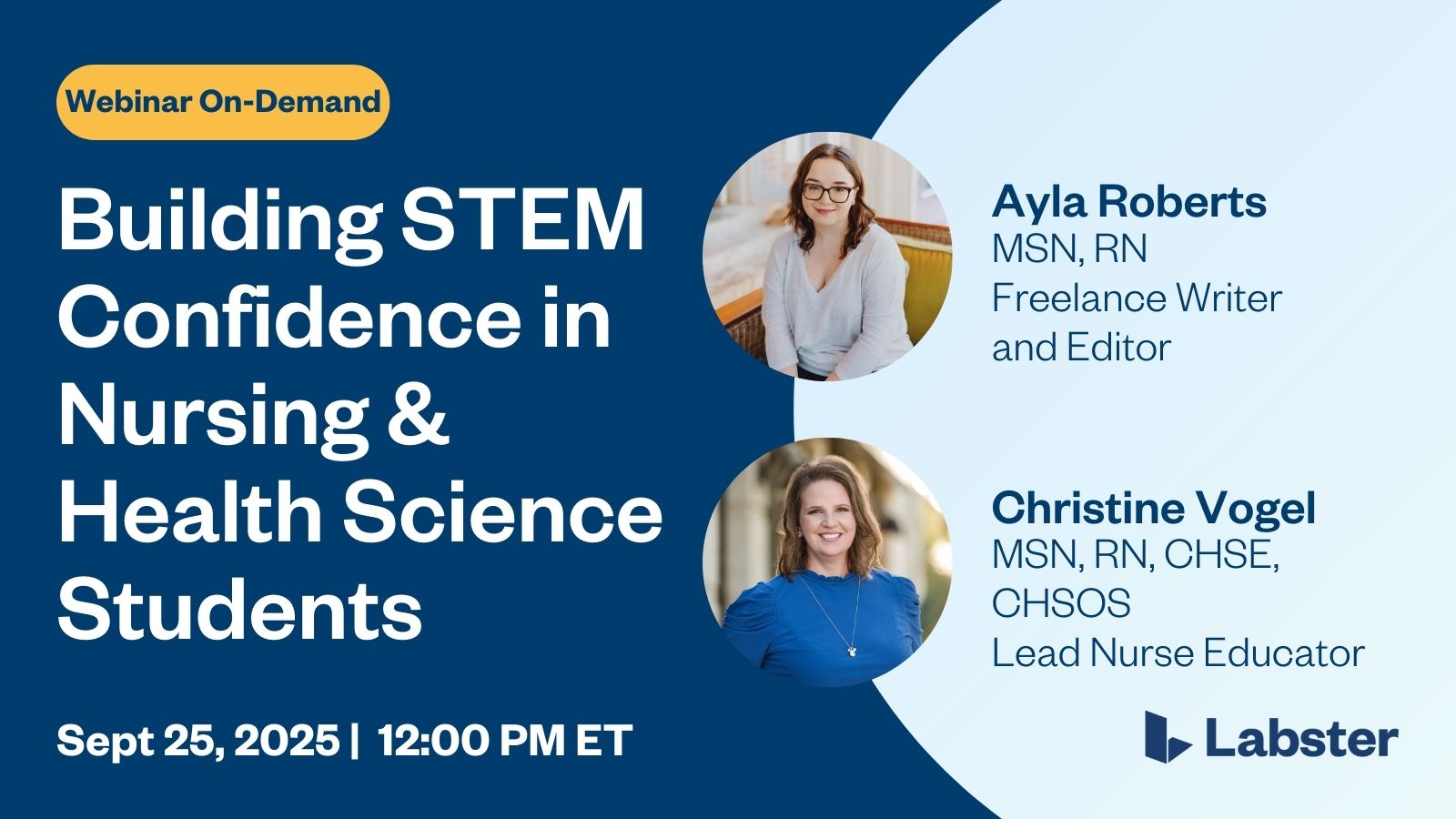
Table of Contents
Name of the heading
Careers are constantly on the minds of educators and students because preparation for the real world is crucial to effective classroom learning. The World Economic Forum came out with three critical skills students will need to have central in class to prepare them for jobs of the future.
The three skills are:
- Problem-solving
- Adaptability
- Collaboration
We asked our Global Curriculum Lead, SJ Boulton, how Labster supports and encourages these three skills through our virtual lab simulations. Read on to find out more!
1. Problem-solving
Problem-solving is the ability to solve a problem with ease. Our simulations are set up as storylines where students get to follow a story and make choices throughout. In many of our simulations, students will encounter problems they’ve never faced before and have to determine a course of action. For example:
“We have a Solution Preparation simulation where students learn how to make the solution. They can just kind of have at it. If they get too mixed up and everything's not working, they can just press the big red button and reset it so they can try again. I think that's a really good example of problem-solving.” - SJ Boulton
2. Adaptability
SJ outlined two aspects of adaptability. The first is being able to negotiate environments in the story-based simulations that perhaps they've never encountered before and the second being preparation for a digital workforce.
- Learning to respond to adverse scenarios: For example, the Lab Safety simulation. If they do the lab improperly, they accidentally set someone on fire, and they have to deal with that scenario. Hopefully, it never happens in real life, but they get to manage these scenarios and learn how to respond in an environment where no one will get hurt. This way, they’re better prepared for real-life labs. Ideally, they’ll make fewer mistakes, too.
- Preparation for a digital workforce: When students get out into the real world, they’re going to need familiarity with tech in most fields. Scientific workers have to interact with digital technologies in ways that previous generations haven't. There’s a great deal of automation in the workplace. We've got a lot of digital tools that support basic labs, like digital notebooks or digital lab books.
“Labster better prepares students to engage or adapt to change in workplaces as digital technology advances. The integration of Labster prepares students for a digital workforce.” - SJ Boulton
3. Collaboration
While students often do simulations independently, there are ways to make the experience collaborative. SJ recommends encouraging collaboration this way:
“Educators can choose to have students complete simulations in pairs. They then have students discuss the choices they’ve made about why they've taken the action that they have within the simulation. And then they can defend it afterward through discussion with the whole class.”- SJ Boulton
Questions for reflection:
- How do you prepare your students for future jobs?
- Do you think these three skills are important? What are some others you might recognize?
FAQs
Heading 1
Heading 2
Heading 3
Heading 4
Heading 5
Heading 6
Lorem ipsum dolor sit amet, consectetur adipiscing elit, sed do eiusmod tempor incididunt ut labore et dolore magna aliqua. Ut enim ad minim veniam, quis nostrud exercitation ullamco laboris nisi ut aliquip ex ea commodo consequat. Duis aute irure dolor in reprehenderit in voluptate velit esse cillum dolore eu fugiat nulla pariatur.
Block quote
Ordered list
- Item 1
- Item 2
- Item 3
Unordered list
- Item A
- Item B
- Item C
Bold text
Emphasis
Superscript
Subscript






